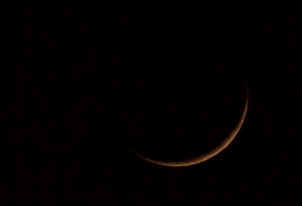This week I’ve been able to get out and just look at the sky. The clouds have broken, for a while, and those crisp, clear low-humidity night skies are back. It sure is getting cold, though!
Saturn and Mercury are toying with the setting Sun. Jupiter and Mars are in the morning sky, and Venus is getting perilously close to the Sun from the morning side. I’ve looked for Uranus, but get distracted. Have seen a couple nice meteors as well, without really looking for them.
The summer triangle is all but gone. Cygnus, and its bright star Deneb, are still high overhead in the evenings, but Vega (in Lyra) is approaching the northwest horizon, and Altair (in Aquila) is in the west. Andromeda is straight up – and it’s been dark enough to glimpse the galaxy with the naked eye. The Circlet in Pisces has been another challenge – just south of the Great Square in Pegasus, distinct but faint enough that you almost have to look away to see it.
Orion is returning. By the time the Sun sets, the Pleiades (Seven Sisters) in Taurus are already high in the east, with the “V”-shaped Hyades and its bright star Aldebaran following. Orion is laying on the eastern horizon, with his belt vertical, and the great Orion Nebula shining in his sword. Winter is coming.
I’ve thought some about the Moon too. It’s been crescent this week, and next Saturday night (12/2) we’ll see the super-est Super-Moon of the year.
Scott Levine, a fellow blogger at Scott’s Sky Watch, and who’s fortunate enough to do a column for BBC, wrote some things this month about how we define a “month”. Go check his site for details, but his discussion of sidereal months, lunations, and months on other planets makes you think about the arbitrary nature of what we’re used to.
About the same time that I saw Scott’s article, I saw a discussion of tidal locking – that phenomena that has trapped the Moon into a “one-rotation-per-orbit” situation that has it always facing the Earth. The same thing is happening to us. As the Moon pulls on
Earth and creates tidal bulges, that bulge is spun ahead of the Moon by the Earth’s rotation, and its own momentum. This gives the Moon a “handle” to pull on, and slow the Earth down, while that same tug is trying to speed the Moon up. The Earth is losing though, what with all the friction and the sloshing of the oceans – our days are getting longer as the Earth’s rotation slows, and the Moon is sliding, very slowly, farther away. One of these days, billions of years from now, the Moon and Earth will be locked, facing each other. Only those of us on one side of the Earth will ever see the Moon. At that point, the Moon will be far enough away that a month (lunar orbit) lasts closer to six weeks, though our concept of a month won’t really exist any more. Because of the tidal lock, an Earth Day will last one lunar orbit as well.. The Moon will stay essentially stationary in the sky and go through all its phases during that one long day, as the Sun and stars slowly move past it. Sunrises and sunsets will be proportionally longer too – maybe warranting a few solid current-days of celebration each “month” as the sky stays pink and orange for what we know now as a day and a half. I bet those long nights will be cold, though.
 Of course, by that time, the Sun will have become a red giant and swallowed up both the Earth and the Moon – but it goes to show that what’s “normal” for us is just a trick of cosmic alignment in time and place. Our circadian rhythms have evolved to a particular set of circumstances, like sea creatures that depend on a particular arrangement of tides. It didn’t have to be this way… and ultimately it won’t. Our descendants will likely themselves be totally alien creatures compared to our modern view of humans, and they’ll live in a completely different universe, maybe even on multiple planets.
Of course, by that time, the Sun will have become a red giant and swallowed up both the Earth and the Moon – but it goes to show that what’s “normal” for us is just a trick of cosmic alignment in time and place. Our circadian rhythms have evolved to a particular set of circumstances, like sea creatures that depend on a particular arrangement of tides. It didn’t have to be this way… and ultimately it won’t. Our descendants will likely themselves be totally alien creatures compared to our modern view of humans, and they’ll live in a completely different universe, maybe even on multiple planets.
Until then, get out, look at the sky, and wonder….
Get Out There
Troy
http://www.flying-squirrel.org





Great post. Funny you mention all you did about tidal forces. I was talking to my kids lot long ago about how many of the things we see now seem eternal and unchanging but over time, we all change, and so too will the day. It’s hard to imagine that the Moon and sunrises, which are reliable and easy to take for granted are changing right under our noses.
Thanks for the nod. Happy Thanksgiving. 😀
LikeLike
Happy to give credit where it’s due, I enjoy your stuff! Hope you had a great holiday!
LikeLiked by 1 person